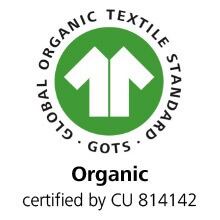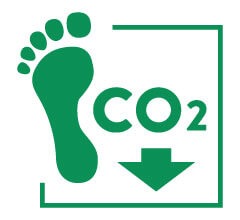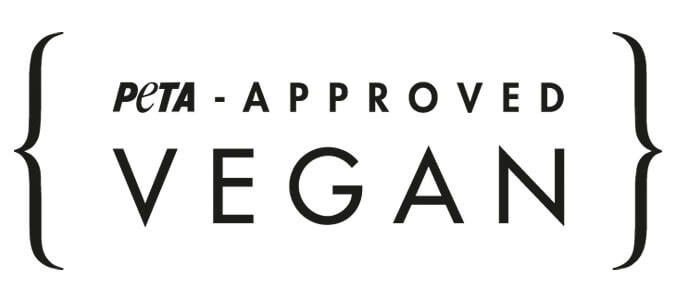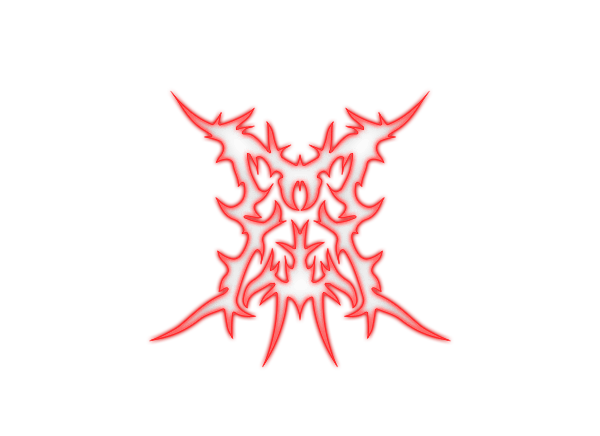HØME
sharing is caring
we take care Øf yØur needs
Return AND Exchange
Returns and exchanges are possible within 14 days without giving any reason. However, you will be charged the immediate cost of returning the goods. The return address is:
Paradox Clothing
Kaiser-Friedrich-Ring 74
65185 Wiesbaden
Paradox Clothing
Kaiser-Friedrich-Ring 74
65185 Wiesbaden
SHIPPING
Free shipping all over Germany. EU-shipping is available. The price varies by country. The shipping will be within 1-14 working days.
If you have any problems, please contact us with your order number and/or personal details, either on instagram or by email at info@paradox.clothing.
If you have any problems, please contact us with your order number and/or personal details, either on instagram or by email at info@paradox.clothing.
PAYMENT
You have the possibility to choose between Paypal or direct bank transfer. If you choose direct bank transfer, our bank details will be displayed at the end of your order and you will receive them separately by E-Mail too. Please use your order number and/or your personal data as the purpose of use. You find the details again here:
SONNY RUECK
DE35100110012627843547
NTSBDEB1XXX
*your order number*
SONNY RUECK
DE35100110012627843547
NTSBDEB1XXX
*your order number*
SUSTAINIBILITY
In a world driven by change, we recognise the need to combine our rebellion with responsibility. Join us in this dance of sustainability, where every garment is not only a work of art, but also a promise to care for the earth. Our rebellion extends to the fabric of our creations, as we are committed to ethically sourced materials and environmentally conscious production processes for our upcoming collection.
> climate-friendly closed-loop production
> organic cotton certified according to the Global Organic Textile Standard (GOTS)
> vegan certified
> PVC-free packaging and 100% recyclable cardboard boxes
> YES to human rights (FWF)
> climate-friendly closed-loop production
> organic cotton certified according to the Global Organic Textile Standard (GOTS)
> vegan certified
> PVC-free packaging and 100% recyclable cardboard boxes
> YES to human rights (FWF)




WHY ØRGANIC CØTTØN?
The use of certified organic cotton offers a number of advantages over conventional, non-organic cotton. Here are some of the most important advantages:
> Environmentally friendly
Organic cotton is grown without the use of harmful pesticides and chemical fertilizers. This protects both the soil and the groundwater and improves the health of the farmers.
> Sustainability
Organic cotton is grown in a sustainable way, which reduces the ecological footprint. This includes the use of natural fertilizers, the promotion of crop rotation and the protection of biodiversity.
> Health benefits
As no toxic chemicals are used in the production of organic cotton, it is kinder to the skin and less allergenic. People with sensitive skin or allergies therefore benefit from clothing made from certified organic cotton.
> Social responsibility
The cultivation of organic cotton promotes fairer working conditions for farmers and workers. By avoiding the use of harmful chemicals, their health and safety are protected.
> Water resources
The cultivation of organic cotton requires less water compared to conventional cotton production. This contributes to the conservation of limited water resources and reduces pressure on local communities.
> Quality
Organic cotton is carefully selected and tested to ensure that it is free from genetically modified organisms (GMOs). This ensures higher quality and longevity of the garments.
> Supporting local communities
Growing organic cotton encourages the development of sustainable agricultural practices in rural communities. This helps to strengthen the local economy and creates jobs for local people.
> Transparency
Certified organic cotton is subject to strict controls and standards that are verified by independent organizations. This ensures that the products are actually organically grown and that consumers are offered a transparent supply chain.
> Reduction of the CO2 footprint
By avoiding the use of chemical fertilizers and pesticides, the cultivation of organic cotton contributes to the reduction of CO2 emissions. This helps to combat climate change and reduce environmental pollution.
> Ethics
The use of certified organic cotton demonstrates an ethical awareness of the environment and people's health. By choosing products made from organic cotton, you are supporting a more sustainable and responsible textile industry.
> Environmentally friendly
Organic cotton is grown without the use of harmful pesticides and chemical fertilizers. This protects both the soil and the groundwater and improves the health of the farmers.
> Sustainability
Organic cotton is grown in a sustainable way, which reduces the ecological footprint. This includes the use of natural fertilizers, the promotion of crop rotation and the protection of biodiversity.
> Health benefits
As no toxic chemicals are used in the production of organic cotton, it is kinder to the skin and less allergenic. People with sensitive skin or allergies therefore benefit from clothing made from certified organic cotton.
> Social responsibility
The cultivation of organic cotton promotes fairer working conditions for farmers and workers. By avoiding the use of harmful chemicals, their health and safety are protected.
> Water resources
The cultivation of organic cotton requires less water compared to conventional cotton production. This contributes to the conservation of limited water resources and reduces pressure on local communities.
> Quality
Organic cotton is carefully selected and tested to ensure that it is free from genetically modified organisms (GMOs). This ensures higher quality and longevity of the garments.
> Supporting local communities
Growing organic cotton encourages the development of sustainable agricultural practices in rural communities. This helps to strengthen the local economy and creates jobs for local people.
> Transparency
Certified organic cotton is subject to strict controls and standards that are verified by independent organizations. This ensures that the products are actually organically grown and that consumers are offered a transparent supply chain.
> Reduction of the CO2 footprint
By avoiding the use of chemical fertilizers and pesticides, the cultivation of organic cotton contributes to the reduction of CO2 emissions. This helps to combat climate change and reduce environmental pollution.
> Ethics
The use of certified organic cotton demonstrates an ethical awareness of the environment and people's health. By choosing products made from organic cotton, you are supporting a more sustainable and responsible textile industry.
fØr any inquiries please cØntact
thank yØu fØr yØur suppØrt ‡

FAQ



Return AND Exchange
Returns and exchanges are possible within 14 days without giving any reason. However, you will be charged the immediate cost of returning the goods. The return address is:
Paradox Clothing
Kaiser-Friedrich-Ring 74
65185 Wiesbaden
Paradox Clothing
Kaiser-Friedrich-Ring 74
65185 Wiesbaden
SHIPPING
Free shipping all over Germany. EU-shipping is available. The price varies by country. The shipping will be within 1-14 working days.
If you have any problems, please contact us with your order number and/or personal details, either on instagram or by email at info@paradox.clothing.
If you have any problems, please contact us with your order number and/or personal details, either on instagram or by email at info@paradox.clothing.
PAYMENT
You have the possibility to choose between Paypal or direct bank transfer. If you choose direct bank transfer, our bank details will be displayed at the end of your order and you will receive them separately by E-Mail too. Please use your order number and/or your personal data as the purpose of use. You find the details again here:
SONNY RUECK
DE35100110012627843547
NTSBDEB1XXX
*your order number*
SONNY RUECK
DE35100110012627843547
NTSBDEB1XXX
*your order number*
SUSTAINIBILITY
In a world driven by change, we recognise the need to combine our rebellion with responsibility. Join us in this dance of sustainability, where every garment is not only a work of art, but also a promise to care for the earth. Our rebellion extends to the fabric of our creations, as we are committed to ethically sourced materials and environmentally conscious production processes for our upcoming collection.
> climate-friendly closed-loop production
> organic cotton certified according to the Global Organic Textile Standard (GOTS)
> vegan certified
> PVC-free packaging and 100% recyclable cardboard boxes
> YES to human rights (FWF)
> climate-friendly closed-loop production
> organic cotton certified according to the Global Organic Textile Standard (GOTS)
> vegan certified
> PVC-free packaging and 100% recyclable cardboard boxes
> YES to human rights (FWF)




WHY ORGANIC COTTON?
The use of certified organic cotton offers a number of advantages over conventional, non-organic cotton. Here are some of the most important advantages:
> Environmentally friendly
Organic cotton is grown without the use of harmful pesticides and chemical fertilizers. This protects both the soil and the groundwater and improves the health of the farmers.
> Sustainability
Organic cotton is grown in a sustainable way, which reduces the ecological footprint. This includes the use of natural fertilizers, the promotion of crop rotation and the protection of biodiversity.
> Health benefits
As no toxic chemicals are used in the production of organic cotton, it is kinder to the skin and less allergenic. People with sensitive skin or allergies therefore benefit from clothing made from certified organic cotton.
> Social responsibility
The cultivation of organic cotton promotes fairer working conditions for farmers and workers. By avoiding the use of harmful chemicals, their health and safety are protected.
> Water resources
The cultivation of organic cotton requires less water compared to conventional cotton production. This contributes to the conservation of limited water resources and reduces pressure on local communities.
> Quality
Organic cotton is carefully selected and tested to ensure that it is free from genetically modified organisms (GMOs). This ensures higher quality and longevity of the garments.
> Supporting local communities
Growing organic cotton encourages the development of sustainable agricultural practices in rural communities. This helps to strengthen the local economy and creates jobs for local people.
> Transparency
Certified organic cotton is subject to strict controls and standards that are verified by independent organizations. This ensures that the products are actually organically grown and that consumers are offered a transparent supply chain.
> Reduction of the CO2 footprint
By avoiding the use of chemical fertilizers and pesticides, the cultivation of organic cotton contributes to the reduction of CO2 emissions. This helps to combat climate change and reduce environmental pollution.
> Ethics
The use of certified organic cotton demonstrates an ethical awareness of the environment and people's health. By choosing products made from organic cotton, you are supporting a more sustainable and responsible textile industry.
> Environmentally friendly
Organic cotton is grown without the use of harmful pesticides and chemical fertilizers. This protects both the soil and the groundwater and improves the health of the farmers.
> Sustainability
Organic cotton is grown in a sustainable way, which reduces the ecological footprint. This includes the use of natural fertilizers, the promotion of crop rotation and the protection of biodiversity.
> Health benefits
As no toxic chemicals are used in the production of organic cotton, it is kinder to the skin and less allergenic. People with sensitive skin or allergies therefore benefit from clothing made from certified organic cotton.
> Social responsibility
The cultivation of organic cotton promotes fairer working conditions for farmers and workers. By avoiding the use of harmful chemicals, their health and safety are protected.
> Water resources
The cultivation of organic cotton requires less water compared to conventional cotton production. This contributes to the conservation of limited water resources and reduces pressure on local communities.
> Quality
Organic cotton is carefully selected and tested to ensure that it is free from genetically modified organisms (GMOs). This ensures higher quality and longevity of the garments.
> Supporting local communities
Growing organic cotton encourages the development of sustainable agricultural practices in rural communities. This helps to strengthen the local economy and creates jobs for local people.
> Transparency
Certified organic cotton is subject to strict controls and standards that are verified by independent organizations. This ensures that the products are actually organically grown and that consumers are offered a transparent supply chain.
> Reduction of the CO2 footprint
By avoiding the use of chemical fertilizers and pesticides, the cultivation of organic cotton contributes to the reduction of CO2 emissions. This helps to combat climate change and reduce environmental pollution.
> Ethics
The use of certified organic cotton demonstrates an ethical awareness of the environment and people's health. By choosing products made from organic cotton, you are supporting a more sustainable and responsible textile industry.

